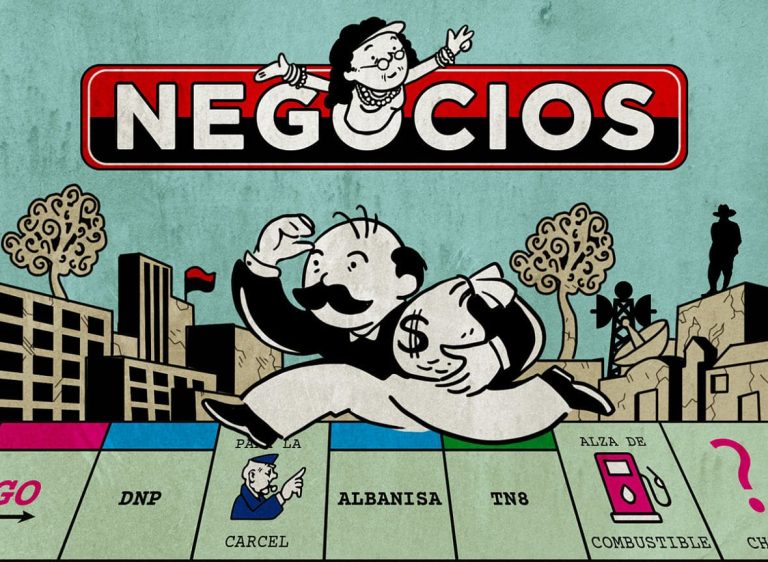

Illustration: Ann Kiernan
Citizen Investigations: Ethics and Safety
Read this article in
Guide Resource
Citizen Investigation Guide
Chapter Guide Resource
Citizen Investigation Guide: Overview
Chapter Guide Resource
Citizen Investigations: Planning and Carrying Out an Investigation
Chapter Guide Resource
Citizen Investigations: Ethics and Safety
Chapter Guide Resource
Citizen Investigations: Searching the Internet
Chapter Guide Resource
Citizen Investigations: Researching Individuals
Chapter Guide Resource
Citizen Investigations: Finding Out Who Owns Corporations
Chapter Guide Resource
Citizen Investigations: Looking Into Government Records
Chapter Guide Resource
Citizen Investigations: Investigating Politicians
Chapter Guide Resource
Citizen Investigations: Digging up Property Records
Chapter Guide Resource Video
Video: GIJC21 – Citizen Investigations
This chapter provides advice on ethical behavior for citizen investigators, and on how to work safely and securely. On both topics, we draw from the experience of the journalism world while trying to make it relevant for non-journalists.
Ethics
Codes of journalistic ethics are behavioral norms with value for citizen investigators.
Such ethics codes are often written in very broad terms based on widely accepted moral principles. It’s their application to specific situations that generates debate. For example, should an observer stay neutral if a life is in danger? Or, is misrepresentation ever warranted?
The Ethical Journalism Network, an international group, has five core principles:
1. Truth and Accuracy
2. Independence
3. Fairness and Impartiality
4. Humanity
5. Accountability
Dozens of ethical codes exist, largely along these lines, but often in more detail. A Global Charter of Ethics for Journalists was issued in 2019 by the European Federation of Journalists. (See a long list of ethics codes of US media outlets here.) A 2019 guide to citizen journalism published by Sonke Gender Justice and Health-E News includes a code by the Press Council of South Africa.
 Citizen investigators and nongovernmental organization researchers often perform tasks similar to those of professional reporters, but they may bring more of an activist agenda to their work and feel less bound by professional journalism ethics.
Citizen investigators and nongovernmental organization researchers often perform tasks similar to those of professional reporters, but they may bring more of an activist agenda to their work and feel less bound by professional journalism ethics.
Standards such as accuracy and fairness not only carry moral weight, they also have practical value. Being transparent about the reporting process helps readers evaluate the quality of the work. Having high standards lends credibility to the story, a virtue for any storyteller.
NGOs, which increasingly do in-depth research and write detailed investigative reports (sometimes by hiring journalists), don’t typically have written ethical codes for their reporting.
Human Rights Watch (简体中文, English, Français, 한국어) mentions standards in a description of its research procedures. Interview techniques may vary, HRW wrote, but “… the guiding principles, such as the need to ascertain the truth, to corroborate the veracity of statements, to protect the security and dignity of witnesses, and to remain impartial, are consistent throughout the organization.”
The World Association of Non-Governmental Organizations has a code that includes: “Information that the organization chooses to disseminate to the media, policymakers, or the public must be accurate and presented with proper context.”
Are citizen investigators different from journalists and NGO researchers?
In many ways, no. Citizen investigators have reputations to protect and should adhere to ethics standards much as journalists and professional researchers do.
There are various issues to consider. For one thing, citizen investigators may be working on their own and not be affiliated with an organization. This ambiguity is bound to raise suspicions with potential sources about how the requested information obtained will be used. Citizen investigators should have a clear and honest answer.
Journalists typically seek to obtain information “on the record” so that the source can be quoted, but may agree to various degrees of anonymity. Citizen investigators may face a more difficult hurdle in gaining a source’s trust, but should be honest about the intended use of the information and their promises to the source.
 For citizen investigators, as for journalists, temptations may arise in the pursuit of information.
For citizen investigators, as for journalists, temptations may arise in the pursuit of information.
Paying for information is generally frowned on by journalists for many reasons. “Checkbook journalism” may encourage sources to tell you what you want to hear. The working relationship may reduce the incentives to challenge a source or to find contrary facts. Readers may become suspicious, as might those in a legal proceeding.
Be skeptical, too, about using deception to get information. Asking a question without identifying yourself, or observing silently, may be okay in some circumstances, but not in others. Acting under false pretenses, such as going undercover or taking secret videos, poses risks.
Security
There are risks involved in doing investigations and certain precautions may be necessary for you and your sources.
At the extreme end of the spectrum, a milkman in India was allegedly murdered by armed assailants in 2018. He had filed an application under the Right to Information Act seeking information about a local construction project, according to a media report.
Using secure communications and protecting your own computer and phone are among the main things to do.
GIJN’s Safety and Security Resource Center provides guidance on prudent steps to take.
Here are some useful sources:
Committee to Protect Journalists’ Safety Kit: Issued in 2018, this kit provides journalists and newsrooms with basic safety information on physical, digital, and psychological safety resources and tools. It is available in English, Spanish, French, Arabic, Russian, Somali, Persian, Portuguese, Chinese, Turkish, and Burmese.
The Practical Guide for the Security of Journalists was updated in 2017 by Reporters Without Borders and UNESCO. It is available in English, French, Spanish, and Portuguese.
Freelance Journalist Safety Principles: These guidelines were issued in February 2015 by a coalition of major news companies and journalism organizations. Translations are available in Arabic, French, Hebrew, Persian, Russian, Spanish, and Turkish.


















